Inhaltsverzeichnis
-
CBD, the abbreviation for Cannabidiol, is currently at the center of many discussions. But what do you really know about this cannabinoid? In this blog post, we provide you with a comprehensive overview of CBD - from its history to its diverse components and its areas of application.
1 CBD - What Is It?
What is CBD?
- Manufacturing CBD Oil
- Concentrations of CBD Oil
- The Taste of CBD Oils
What is CBD?
CBD, the abbreviation for Cannabidiol, is currently at the center of many discussions. But what do you really know about this cannabinoid? In this blog post, we provide you with a comprehensive overview of CBD - from its history to its diverse components and its areas of application.
1 CBD - What Is It?
What is CBD?
CBD, short for Cannabidiol, is one of over 80 cannabinoids discovered in the 1940s. Raphael Mechoulam first synthesized CBD in the 1960s, and in recent years, the popularity of over-the-counter CBD oils has increased. CBD is used for various conditions, including sleep disorders and inflammatory diseases. It is a natural chemical compound derived from the cannabis plant (hemp). Compared to Tetrahydrocannabinol (THC), responsible mainly for the intoxicating effect, CBD is the second most concentrated cannabinoid in the hemp plant. However, unlike THC, CBD does not induce a psychoactive effect.

What is the Difference Between CBD and THC?
Cannabinoids are chemical compounds from the cannabinoid group extracted from the cannabis plant. THC (Tetrahydrocannabinol) and CBD (Cannabidiol) are the most important among over 100 different phytocannabinoids produced by the plant. These two substances occur in the plant at the highest concentrations and are essential components of products like CBD and THC oil.
Cannabinoids in the Hemp Plant
The hemp plant, also known as Cannabis Sativa, releases its two main active ingredients, CBD and THC, primarily in the resin of the plant. This resin, emitted by small hairs on the flowers of female plants, may have a protective function against dehydration and predators due to its water-repellent properties.
CBD and THC in the Body
Both substances, CBD and THC, can bind to the body's endocannabinoid system (ECS). While THC has psychoactive effects, CBD influences receptors to better interact with the body's own cannabinoids without causing a psychoactive effect. CBD does not induce intoxication, as is the case with THC.
THC vs. CBD
| THC | CBD |
|---|---|
| Psychoactive Effect | No Psychoactive Effect |
| Influences the Senses | Reduces Breakdown of Endocannabinoids |
| Can Lead to Dopamine Release | Prevents THC from Binding to Receptors |
| May Cause Dependency | Does Not Induce Dependence |
If you want to learn more about THC, feel free to read our article 'What is THC (Tetrahydrocannabinol)? Meaning & Effects.'
Is CBD the Same as Marijuana?
CBD flowers and marijuana have a common origin in the flowers of the female hemp plant but differ fundamentally. CBD flowers consist of EU-certified cannabis with a maximum THC content of 0.2%, in contrast to marijuana, known for its intoxicating THC content.
What are CBD Flowers? CBD flowers come from hemp varieties bred specifically to produce high amounts of CBD while keeping THC at bay. Unlike THC, Cannabidiol (CBD) has no hallucinogenic effect and is often referred to as medicinal hemp. CBD, including CBD flowers, is available over the counter as a dietary supplement and can be legally purchased in Germany.
Uses of CBD Flowers - Many consume CBD flowers by smoking or vaporizing, but other forms of application such as use in vaporizers, hookahs, cigarettes, cigars, pipes, or as an ingredient in baked goods are popular.
Difference from Marijuana - CBD and THC act on the human endocannabinoid system but have opposing effects. While THC is stimulating, CBD has a calming effect. These differences are reflected in different effects on the body, such as appetite or mood.
Are CBD Flowers Legal? - The legal status of CBD flowers is a gray area. Although CBD products are allowed, cultivation is subject to special approval requirements. Additionally, CBD-containing foods may fall under the Novel Food Law. The responsibility for complying with legal regulations lies with the providers.

2 Mechanism of Action of CBD
How Does CBD Work in the Body?
CBD belongs to cannabinoids, natural substances in the hemp plant that interact with the CB1 and CB2 receptors of the endocannabinoid system. The duration of CBD's effects can roughly be indicated as 2 to 8 hours, with the actual duration depending on various factors. Individual sensitivity plays a role, as the effects may last longer in some people than in others. The way CBD is taken, whether through smoking, oils, supplements, or topical application of creams, also influences the duration. The quality of the CBD product and the correct dosage are also crucial for effectiveness.
Regular intake of CBD over an extended period is believed to lead to a longer presence in the body. Therefore, it is recommended to take CBD products 2-3 times daily.
CBD Effects
- Calming and relaxing, for stress reduction and sleep disorders
- Regulates hormone balance
- Strengthens the immune system and cardiovascular system
- Helps with digestive problems
CBD Properties
- Immune-boosting
- Pain-relieving
- Antispasmodic
- Anxiety-relieving
- Anti-inflammatory
- Appetite-suppressant
- Antipsychotic
Applications of CBD Oil
To ensure effective use of CBD oil and derive the maximum benefit, it is important to listen to your body, reactions, and intuition. CBD drops placed under the tongue often work quickly, often within minutes. The speed and duration of the effect are crucial factors that can vary depending on the application area and health goal.
It is recommended to test the same amount of CBD over at least 2-3 days and start with a lower dosage than indicated. To find the ideal dosage, approach it gradually by increasing the dose slowly and in small steps.
Side Effects of CBD
The World Health Organization has classified Cannabidiol as an effective and safe substance. In general, CBD is considered well-tolerated, and side effects are usually minor. These side effects are more likely to occur when CBD is combined with other medications or taken in higher doses.
There are five possible side effects that may occur when taking CBD:
- Low blood pressure
- Dry mouth
- Diarrhea
- Loss of appetite
- Fatigue
These side effects are temporary and last only as long as cannabinoids are present in the body. Typically, these symptoms disappear once the intake of the supplement is discontinued.
3 The Components of CBD
Cannabinoids
Cannabinoids are natural compounds found in hemp, especially in Cannabis Sativa. In the human body, they interact with cannabinoid receptors located in various areas of the nervous system. This interaction influences the release of neurotransmitters and plays a crucial role in regulating various bodily functions.
CB1 and CB2 - the Two Cannabinoid Receptors
Two essential cannabinoid receptors are known as CB1 and CB2. They are located in different areas of the nervous system and have specific functions that influence various aspects of our body. The differences in their location and function make CB1 and CB2 key to understanding the effects of cannabinoids.
THC and CBD - the Most Well-Known Cannabinoids
The most well-known cannabinoids are THC (Tetrahydrocannabinol) and CBD (Cannabidiol). THC is known for its psychoactive properties, while CBD is appreciated for its diverse medical applications. These two cannabinoids are at the forefront of hemp research and application.
Terpenes
Terpenes are versatile compounds that not only determine the scent of plants but also possess a wide range of health-promoting properties. In hemp plants, terpenes occur in unique blends that create the characteristic scent while playing a key role in enhancing the effects of the environment. Hemp scent and its composition
The distinctive smell of hemp results from a complex mixture of terpenes present in the plant. These aromatic compounds not only provide a pleasant fragrance but also contribute to allowing cannabinoids, especially CBD, to unfold their full potential. The unique terpene combination in hemp thus plays a crucial role in overall well-being.
Vitamins, Minerals, and Trace Elements
CBD and CBD oil offer many valuable vitamins, with Vitamin E being present in large quantities, which can slow down the aging process of the skin and possesses antioxidant properties. Vitamin B1 and B2 are also found in CBD.
- Vitamin E: Protects cells, slows down aging, antioxidant
- Vitamin B1: Nervous system support, regulates serotonin levels
- Vitamin B2: Aids in protein, fat, and carbohydrate breakdown, energy production
Whether iron, copper, manganese, or magnesium, Cannabidiol contains many essential minerals and trace elements for the human body.
- Calcium: Essential for cell viability, vital for bones, cartilage, and teeth
- Iron: Improves oxygen transport in the blood
- Copper: Strengthens the immune system, aids in red blood cell formation
- Potassium: Regulates water balance, supports the nervous system, lowers blood pressure
- Sodium: Important for nerves and muscles, balances fluids in the body
- Manganese: Vital for strong and healthy connective tissue
- Magnesium: Boosts the immune system and blood circulation, helps with various health issues
- Phosphorus: Important for teeth, bones, and cell structure
- Zinc: Essential for metabolism, skin, hair, nails, and over 300 enzymes in the body
Omega-3 and Omega-6 Fatty Acids
Omega-3 and Omega-6 fatty acids are extremely important for the human body, especially when they are in the right ratio. CBD oil is the only plant oil that offers the perfect ratio of 1:3. These fatty acids can accelerate cell regeneration, protect cell membranes, and inhibit inflammation. They also have positive effects on blood pressure. Omega-3 and Omega-6 fatty acids are also known as "essential fatty acids" because the body cannot produce them like other fatty acids.
Other Ingredients
Gamma-linolenic acid, chlorophyll, carotenoids - these additional ingredients of CBD have anti-inflammatory, cell-cleansing, and antioxidative properties.
4 CBD Oil:
The Most Popular CBD Product
Manufacturing CBD Oil
The basis for CBD oil is a CBD-rich hemp variety. Various extraction methods are available, with CO2 extraction considered the safest and most effective method. This method allows for obtaining CBD and other beneficial plant ingredients in highly concentrated form. The quality of CBD oil strongly depends on the extraction method.
After extraction, CBD oil can be refined and processed into various consumer goods, including capsules, food, tinctures, vaporizer liquids, cosmetics, beverages, and more. The choice of solvent for extraction, whether CO2, ethanol, hydrocarbon, or olive oil, also influences the quality of the end product.
Concentrations of CBD Oil
CBD oil is available in various concentrations from 5% to 30%. The percentage indicates how much CBD is contained in the oil. Most oils also contain a carrier oil, as 100% pure CBD is rare and unsuitable for most users.
Click here for Calma CBD oils.
The Taste of CBD Oils
The taste of CBD is unique and is often described as earthy, nutty, or slightly bitter. Some compare the taste of CBD oil to green tea or dark chocolate. Our full-spectrum Calma CBD oils, which contain no additives, allow for the unadulterated experience of the pure CBD taste.
5 Other CBD Products:
Flowers, Pollen, Wax, and More
CBD Flowers
What are CBD flowers? These are the buds of the hemp plant that have a particularly high concentration of CBD. They form the basis for many CBD products and can also be consumed in their raw form.
CBD Pollen
CBD pollen consists of resin, pollen, and trichomes and is often sold as pollen powder or pollen pellets.
CBD Extracts
Pure CBD extracts contain up to 100% pure cannabidiol and are among the most expensive CBD products due to the elaborate manufacturing process.
CBD Hash
CBD hash is made from the fine dust of the flowers, leaves, and stems of the cannabis plant and is suitable for various consumption methods.
CBD Wax
CBD wax can contain a concentration of up to 98% and is mainly used for vaporizers.
CBD Cosmetics
From creams to ointments to bath salts, CBD is also suitable for topical application in cosmetic products.
CBD Liquid
What are CBD liquids? They are designed for e-cigarettes or vaporizers, providing an easy and measured way to consume CBD through smoking.
CBD Capsules
For those who do not like the taste of CBD oil, CBD capsules offer a convenient alternative with precise dosage.
6 Legal Situation:
Can I Buy and Consume CBD?
The question of the legality of CBD is crucial for many potential consumers. The good news: Yes, CBD is legal! Unlike THC, cannabidiol (CBD) does not fall under narcotic laws. CBD products are legally available in Germany, Switzerland, and many European countries and can be consumed. However, the products must comply with legal regulations.
For CBD products to be legal, they must come from EU-certified hemp varieties and have a THC content of less than 0.2%. Only CBD flowers are still prohibited in some federal states such as Berlin, even if the THC content is at most 0.2%.
Consuming legal CBD is safe for consumers. Abuse for intoxication purposes is excluded with CBD products. Thus, CBD can be ordered online from reputable providers without worrying about police checks. Drug tests cannot detect CBD, and a THC content of 0.2% is not enough to test positive for THC in a drug test.
Follow the link to learn more about the effects of CBD on the body and whether you can drive with CBD.
7 Dosage and Intake:
How Much CBD Is Good for Me?
The right dosage of CBD is crucial as each person reacts differently. Here are some recommendations:
Start with a small dose and increase it as needed. An average person with normal body weight could take about 50 mg of CBD per day. Increase the dose gradually until you achieve the desired effect.
Dosage often depends on body weight. Individuals with higher body weight may need a higher dose.
Experiment in the first days to find the optimal dose. Be patient, as the effect does not occur immediately for everyone.
Take the time to assess the effect correctly. The application is safe and risk-free.
Set clear goals before starting CBD intake. Determine the desired effect.
A doctor can be helpful, especially if you are taking other medications. A conversation with a qualified doctor familiar with CBD can be beneficial.
Pay attention to possible interactions with alcohol or other medications. Adjust your CBD dose accordingly.
8 CBD for Animals:
Can I Give CBD to My Dog?
Cannabidiol is not only suitable for humans but also for animals. The reason is the endocannabinoid system, which regulates numerous body functions in mammals. Your dog, cat, or horse also has this system, making the way CBD works in animals similar to that in humans.
CBD for Animals
Hemp oil can boost the vitality of pets, promote their endurance, and strengthen their immune system. It also provides them with essential vitamins and nutrients such as omega-6 fatty acids, potassium, magnesium, iron, zinc, vitamin E, and more. CBD can also strengthen the heart, muscles, connective tissue, and promote bone growth.
Is CBD Safe for Pets?
The safety of CBD for pets is often questioned, mostly due to misunderstandings between CBD and THC. Although both come from the same plant, they differ fundamentally. CBD has no intoxicating properties and does not make your pet "high." As long as CBD products adhere to the legal limit of 0.2% THC, they are entirely safe for animals—a standard guaranteed by CBDNOL.
Dosage of CBD for Pets
Calma CBD oil is particularly suitable for pets and can be easily mixed with their food or dripped directly into their mouths. The optimal dose varies from animal to animal and, similar to humans, can be determined through gradual increases. Although it is more challenging to estimate the effect in pets, body weight can serve as a guideline. Larger animals may need higher doses than smaller ones.
A small dog (up to 12 kilograms) can receive about 2 to 5 milliliters of CBD oil per week.
A medium-sized dog (up to 25 kilograms) can tolerate a weekly dose of 5 to 10 milliliters.
A large dog (26 kilograms and above) can tolerate about 10 to 15 milliliters of CBD oil per week.
CBD, Animals, and Side Effects
Like humans, animals may experience mild side effects such as upset stomach, drowsiness, or vomiting. A visit to the vet is advisable, especially if there is uncertainty or if the animal suffers from a specific illness. It is important to emphasize that an overdose of CBD in pets is not possible.
Tip: Experiment cautiously with the amount of CBD oil for your pet, as an overdose is not possible. For more information about CBD, check out our FAQs - Frequently Asked Questions about CBD.


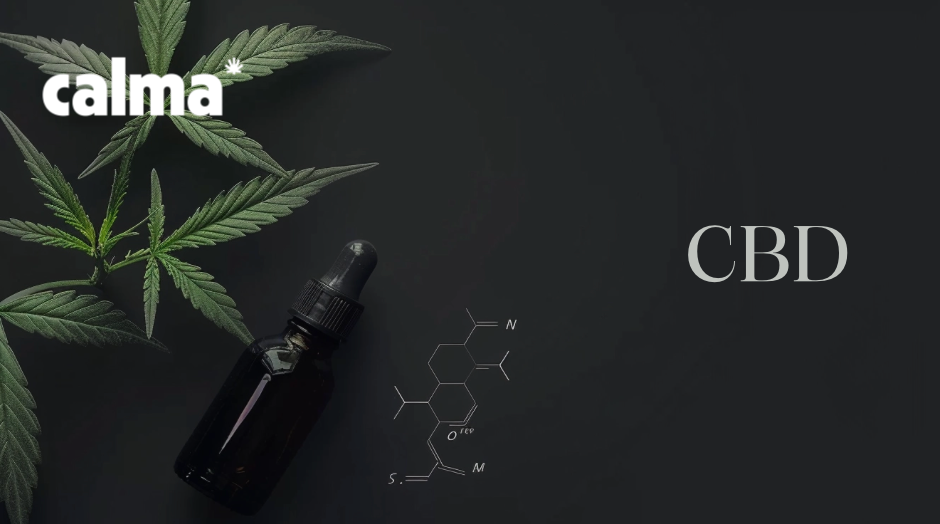
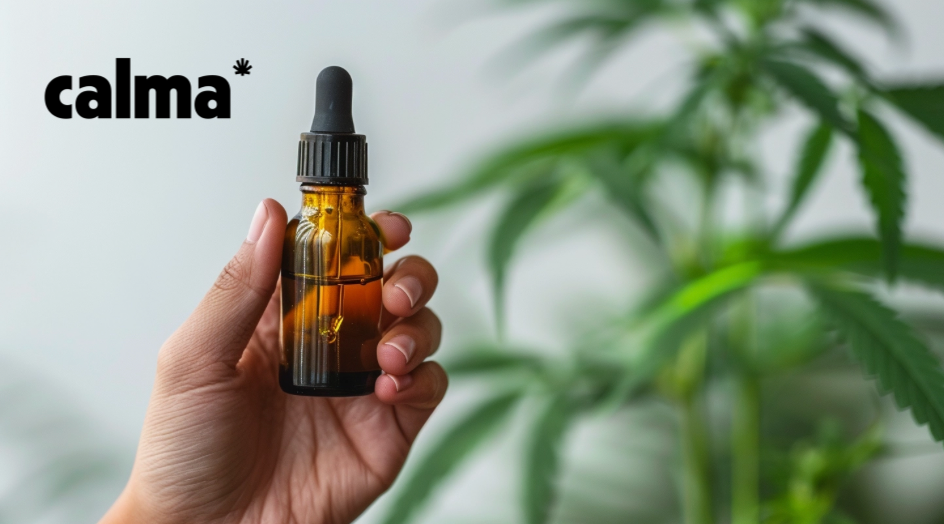
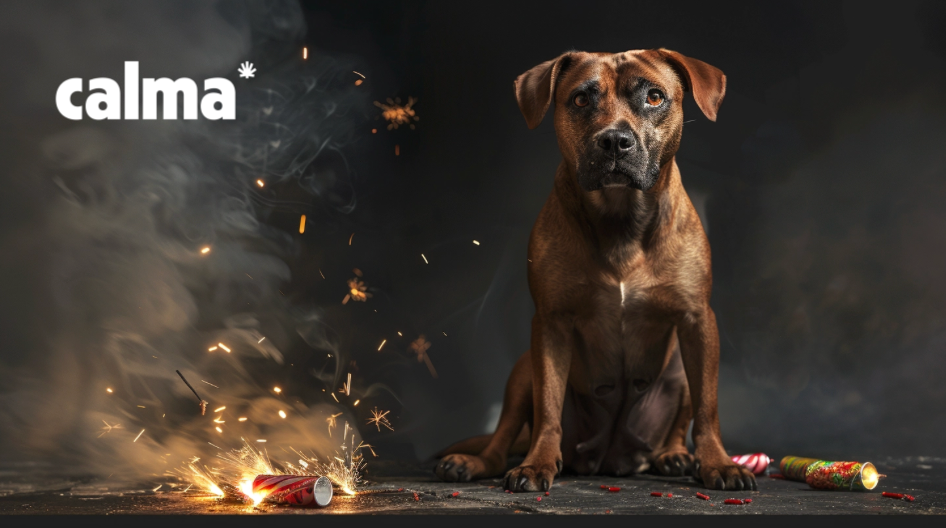

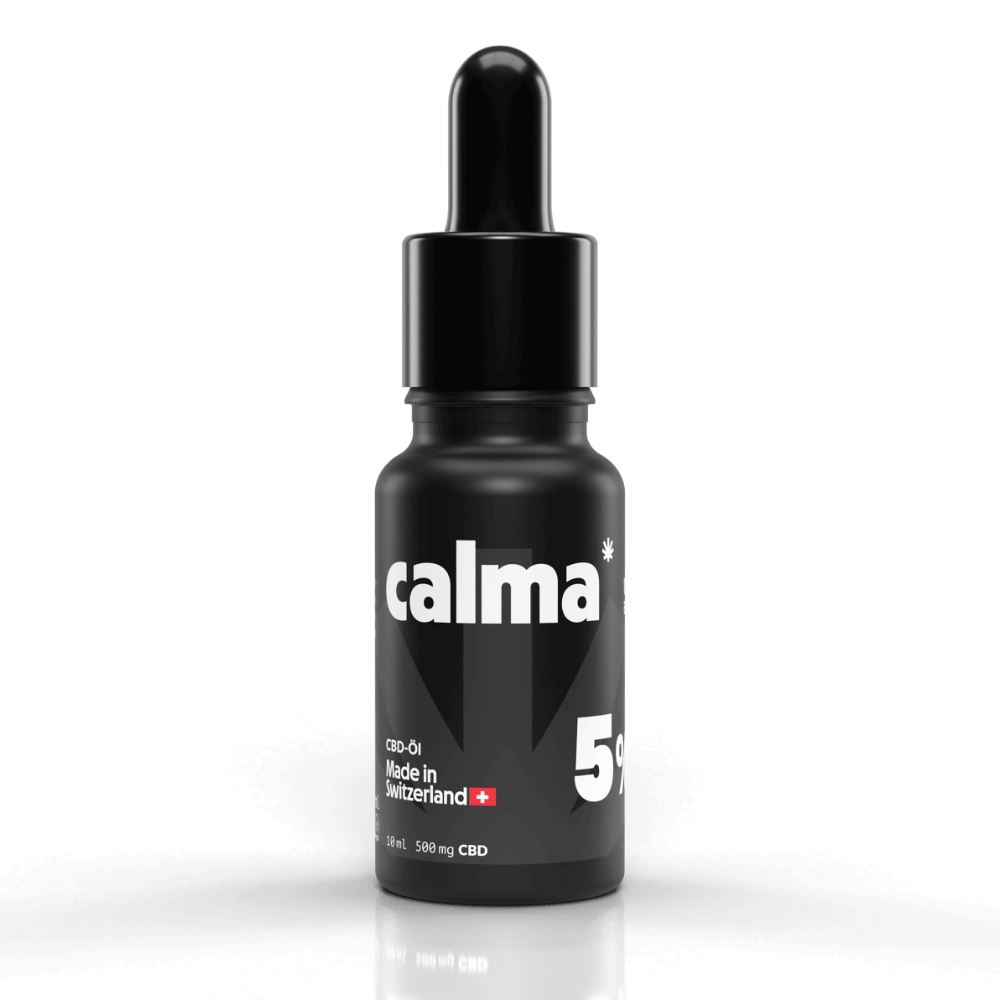
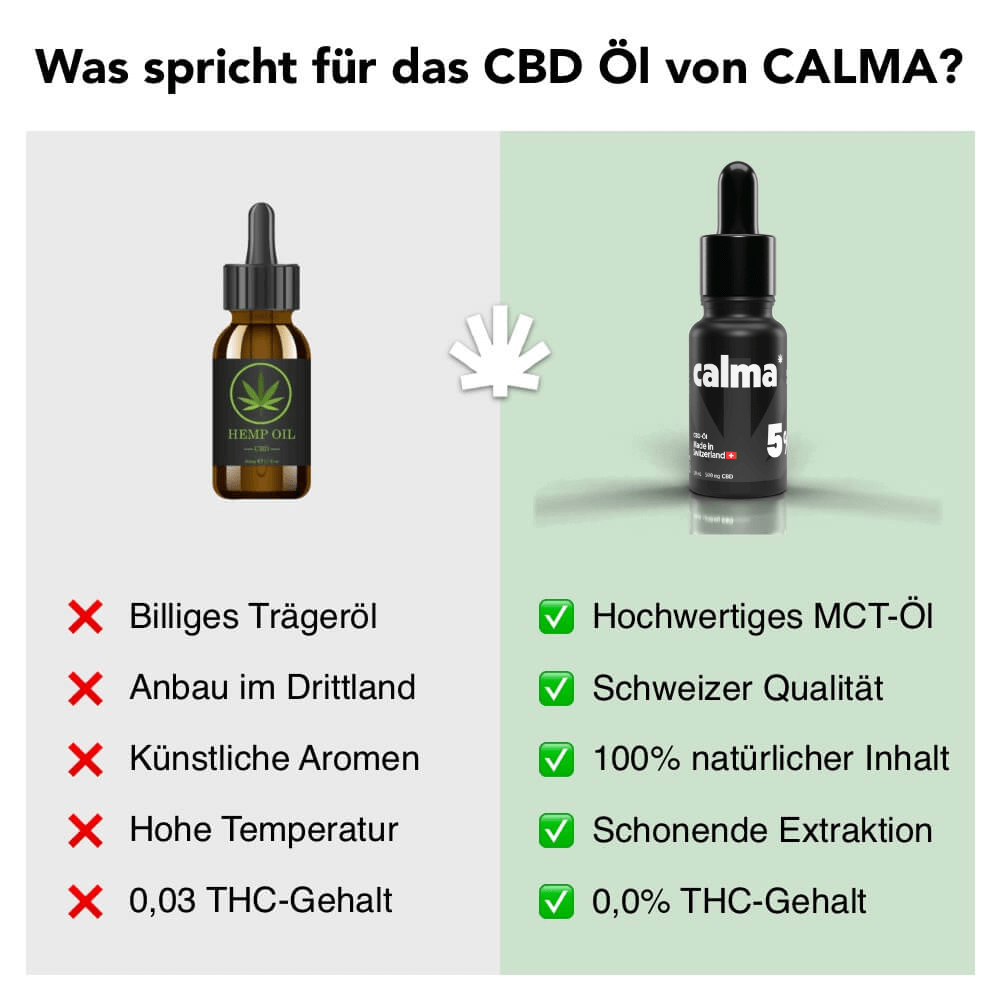
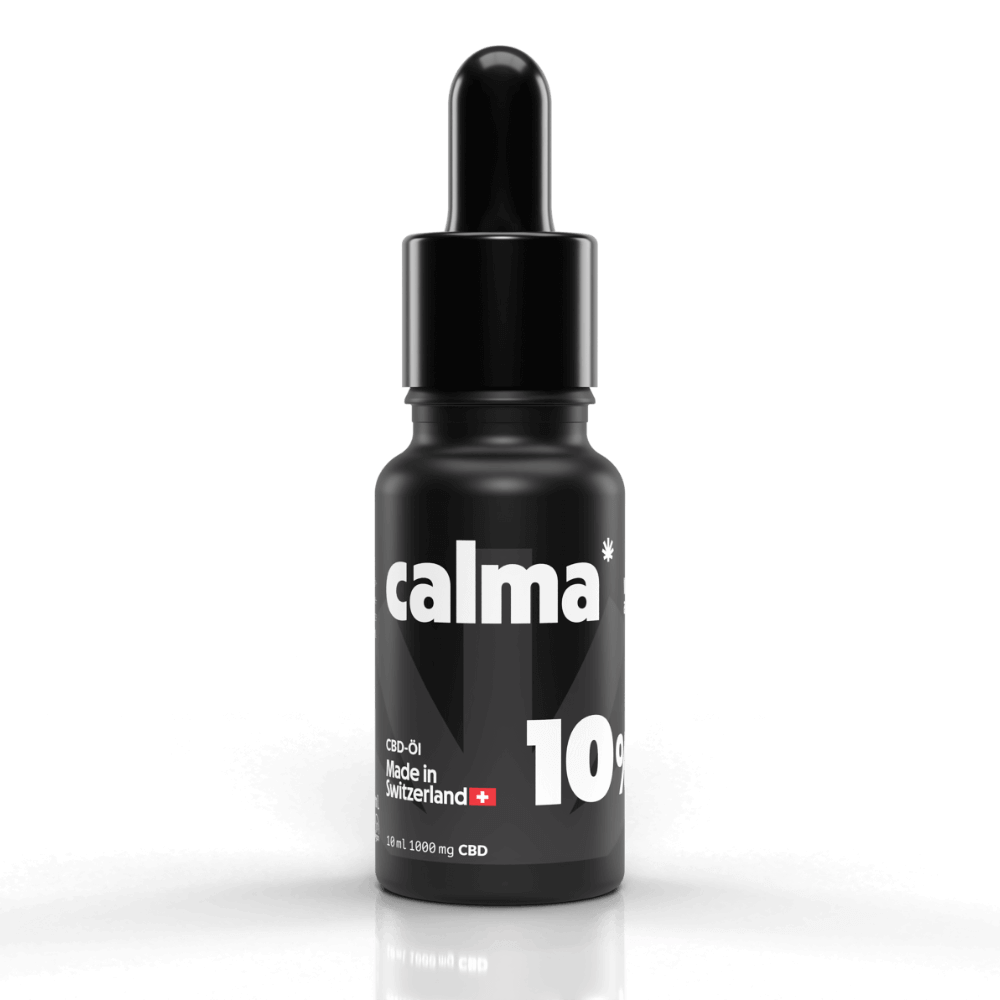
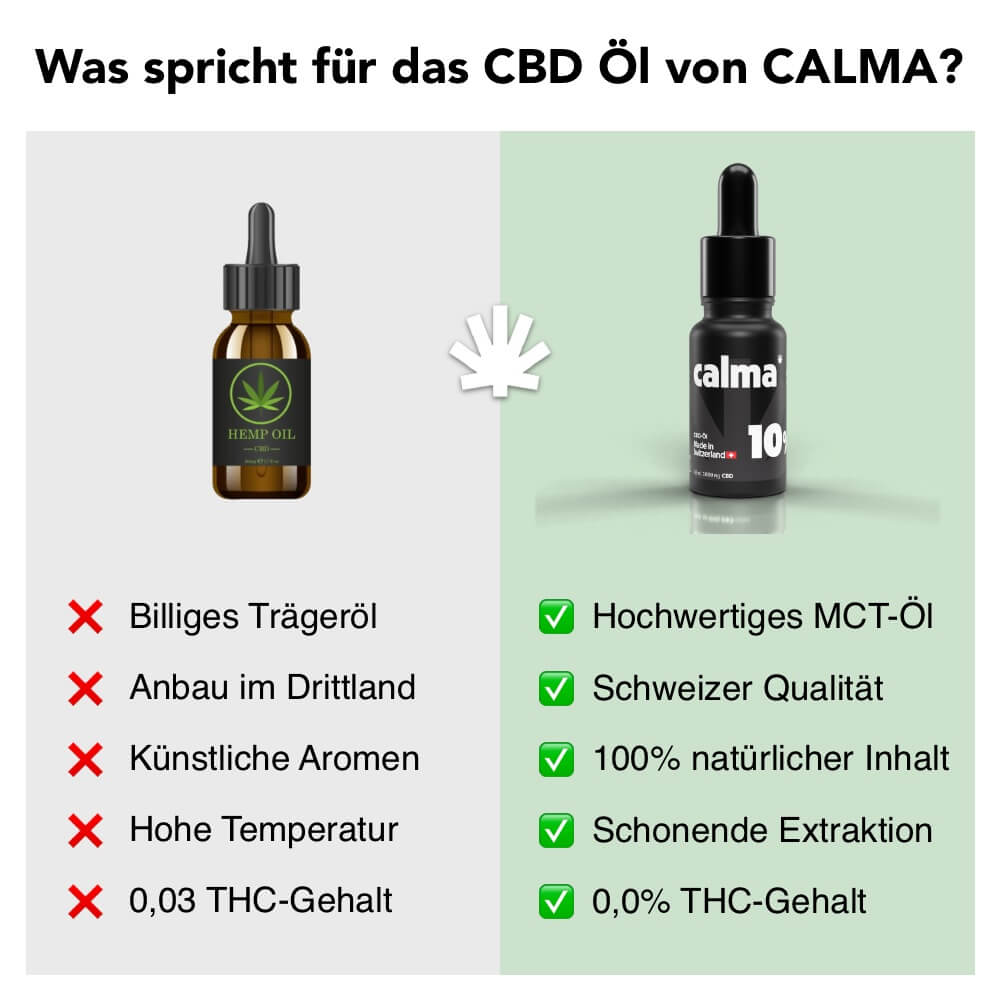
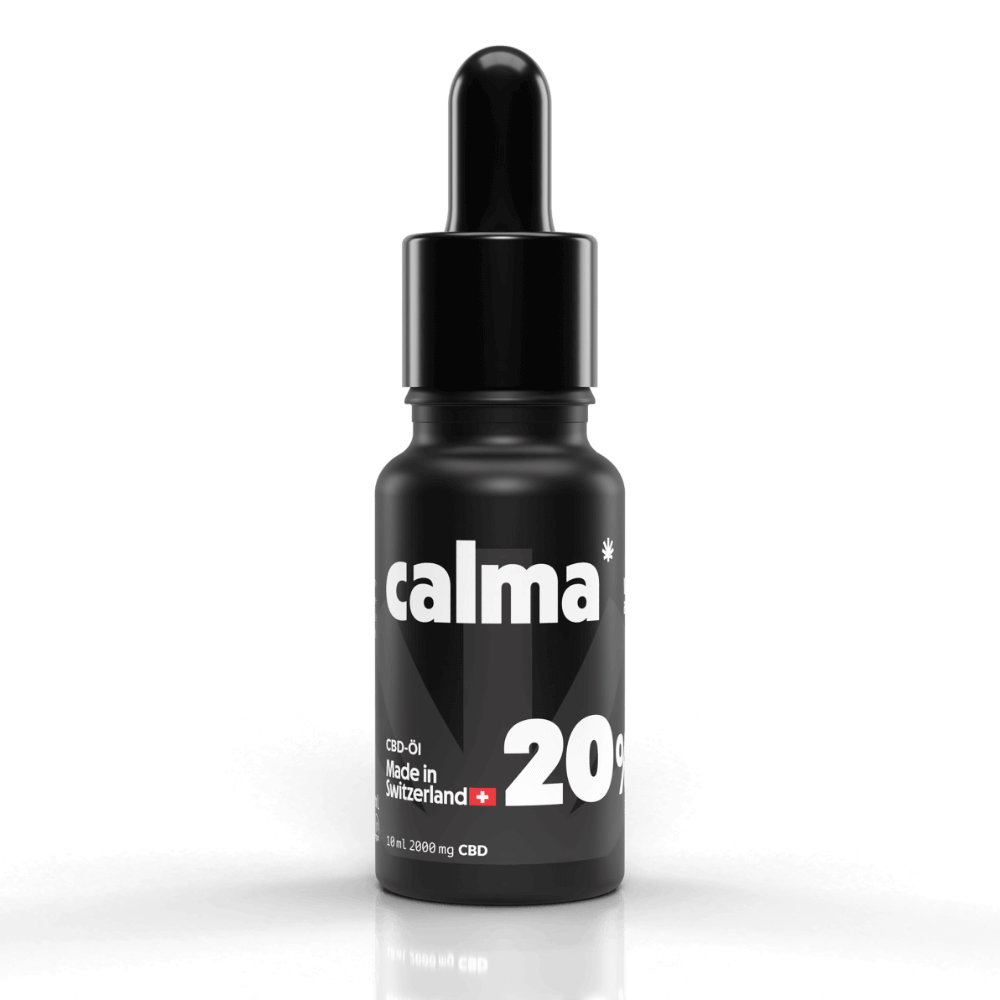
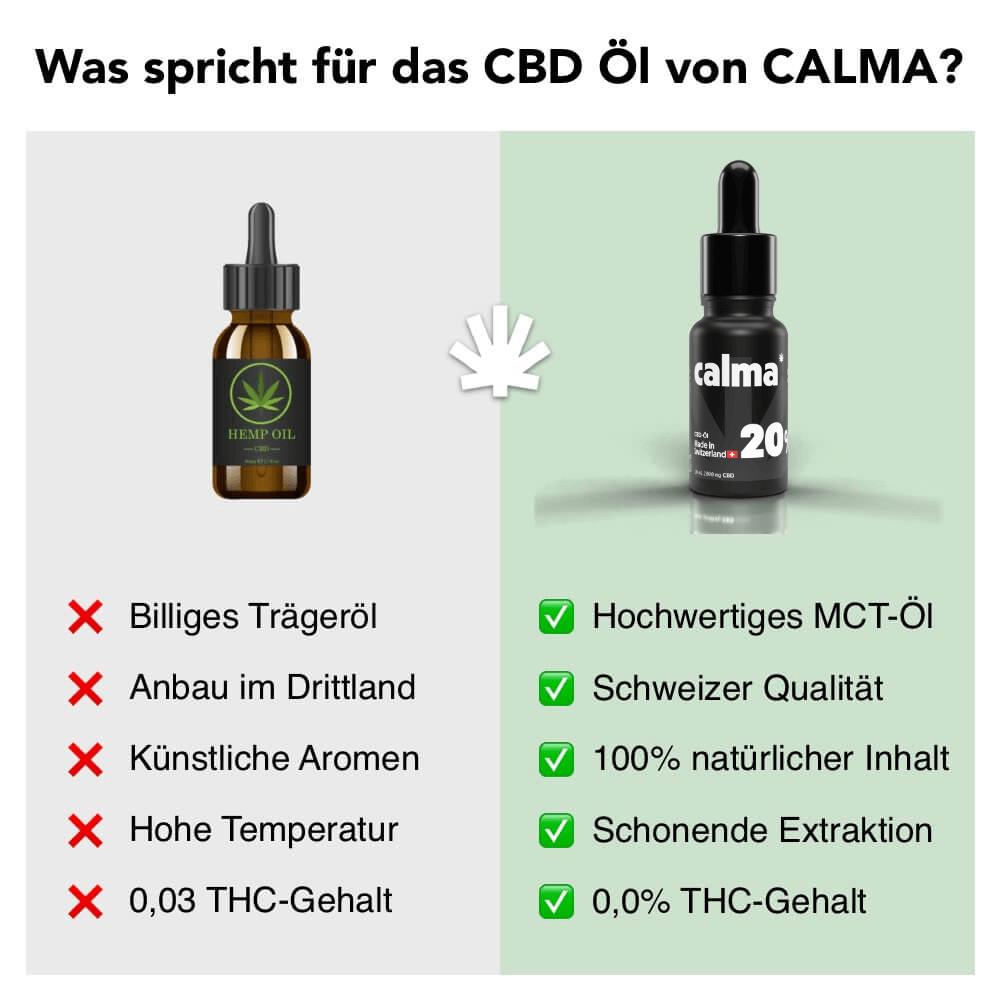
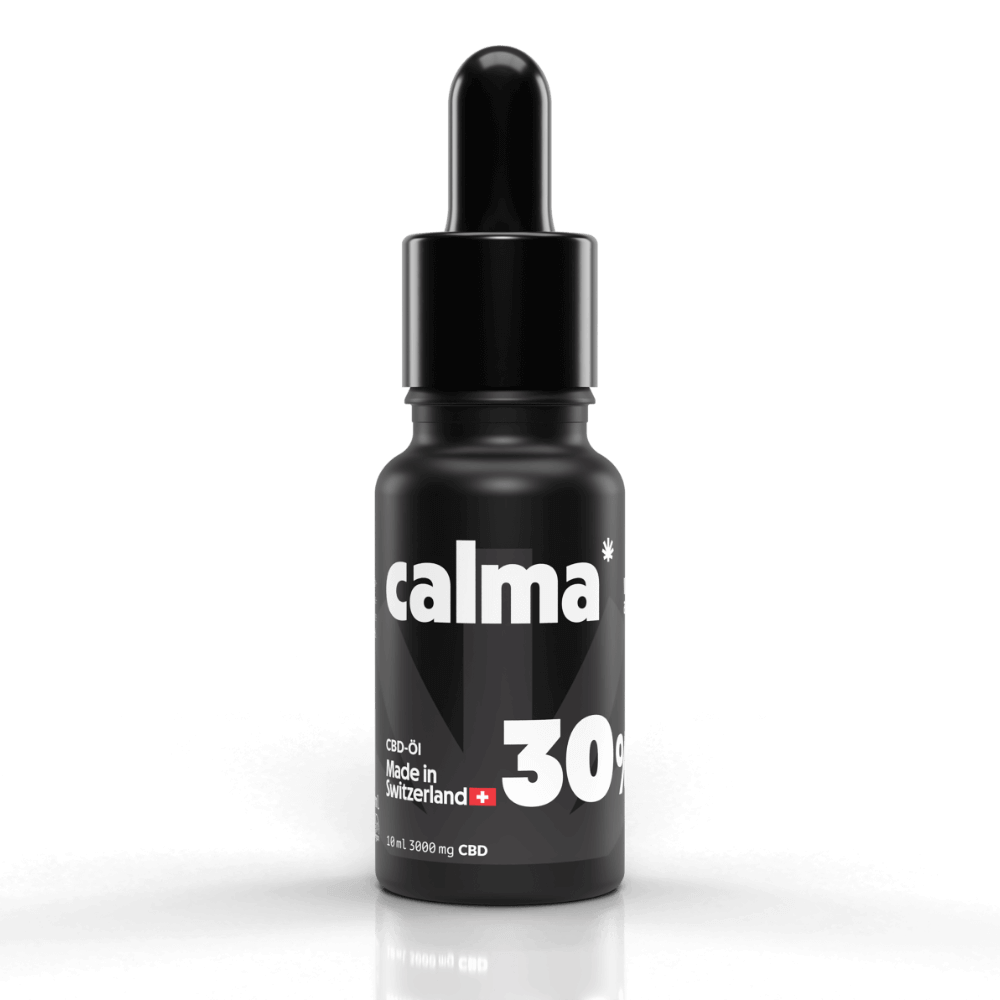
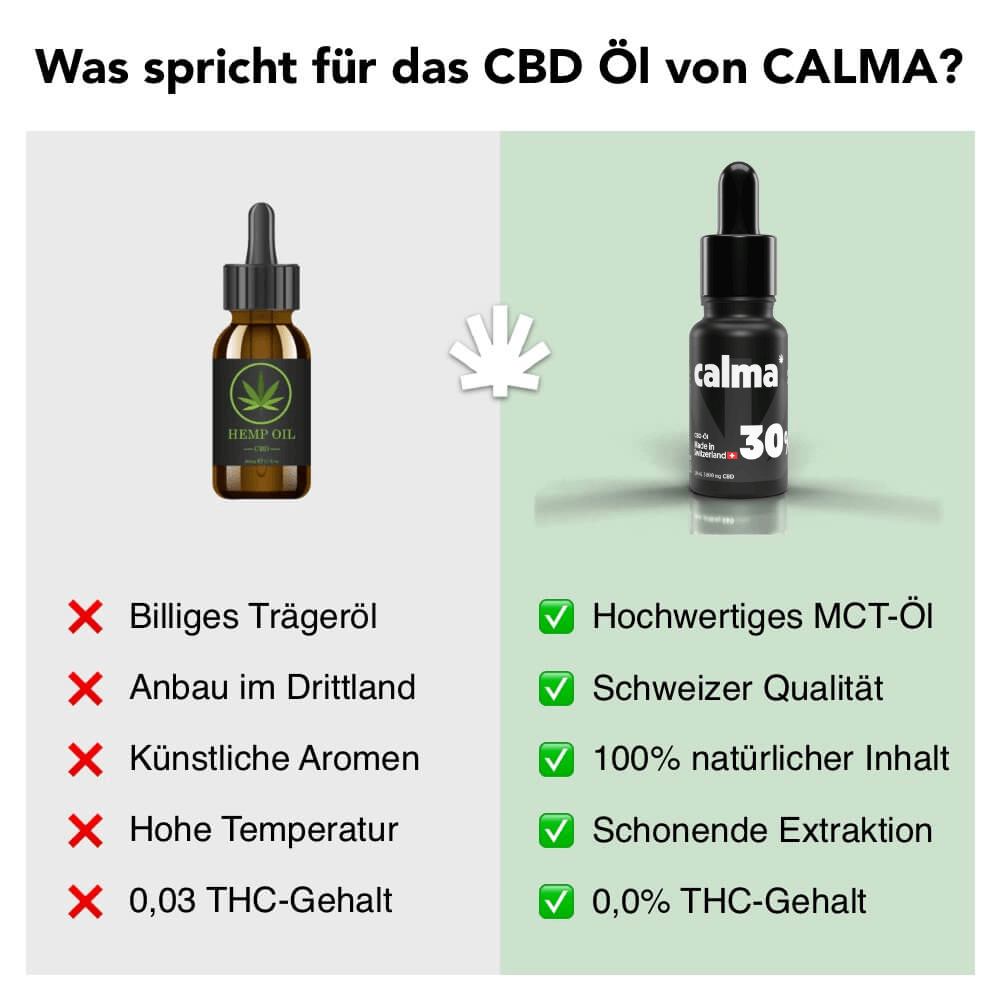
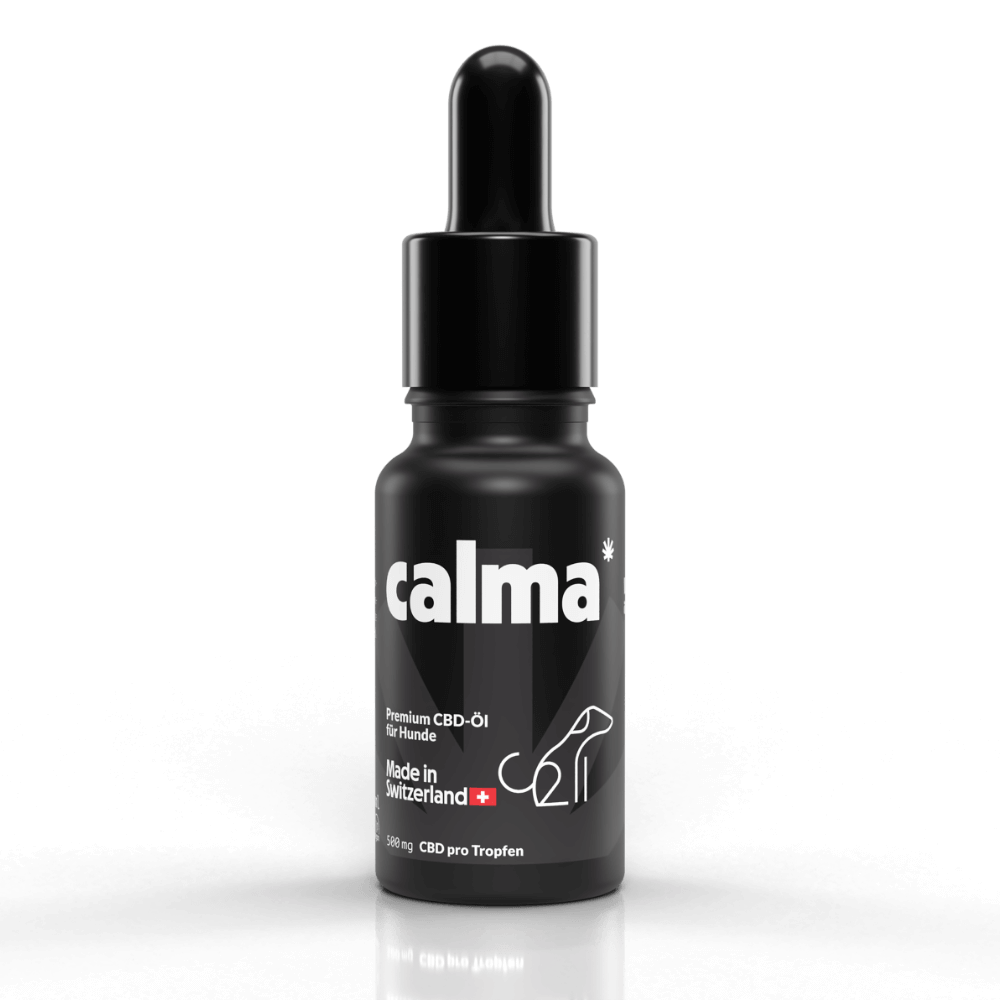
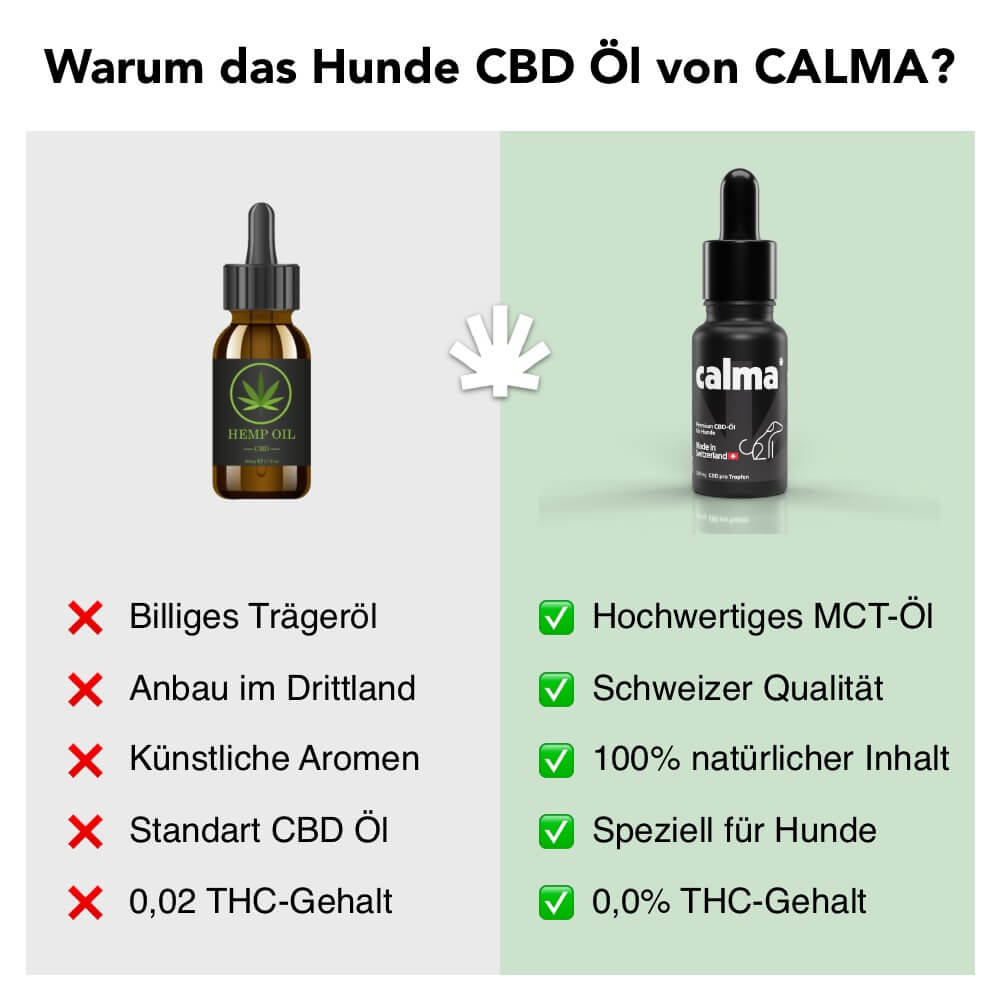
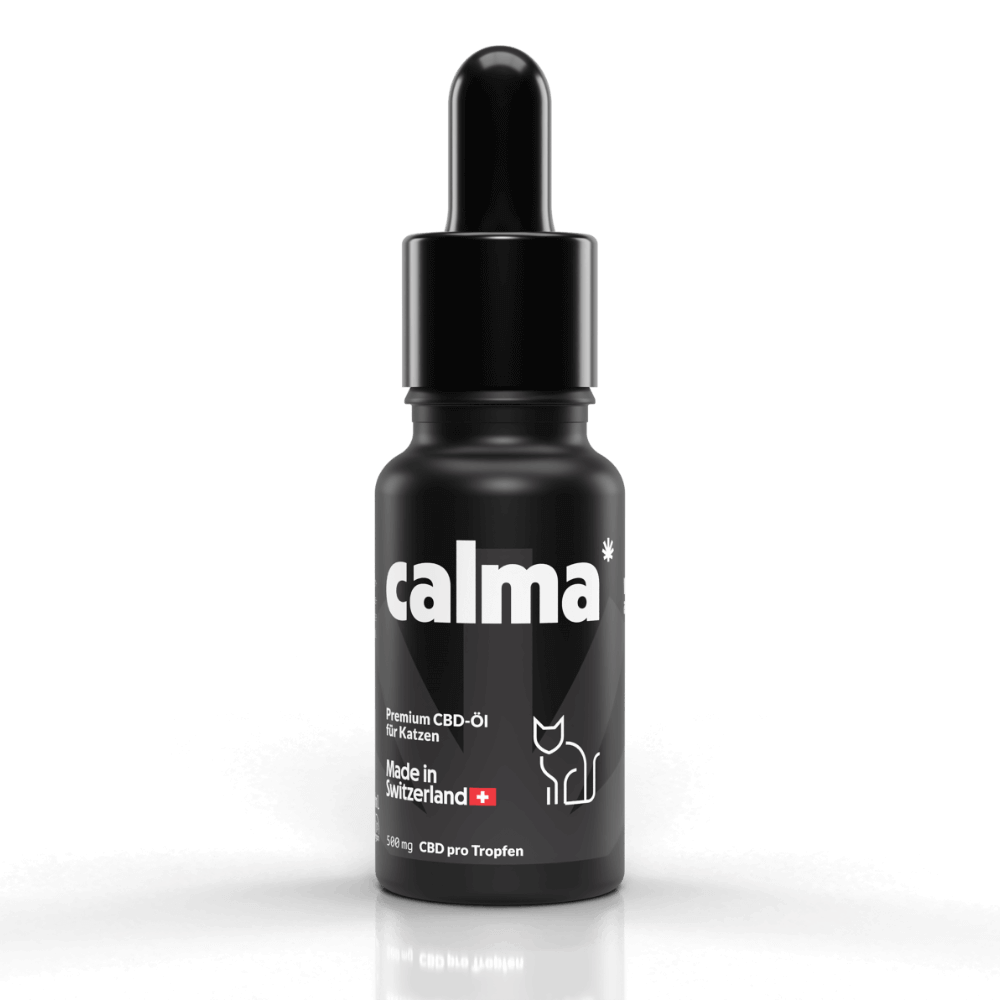
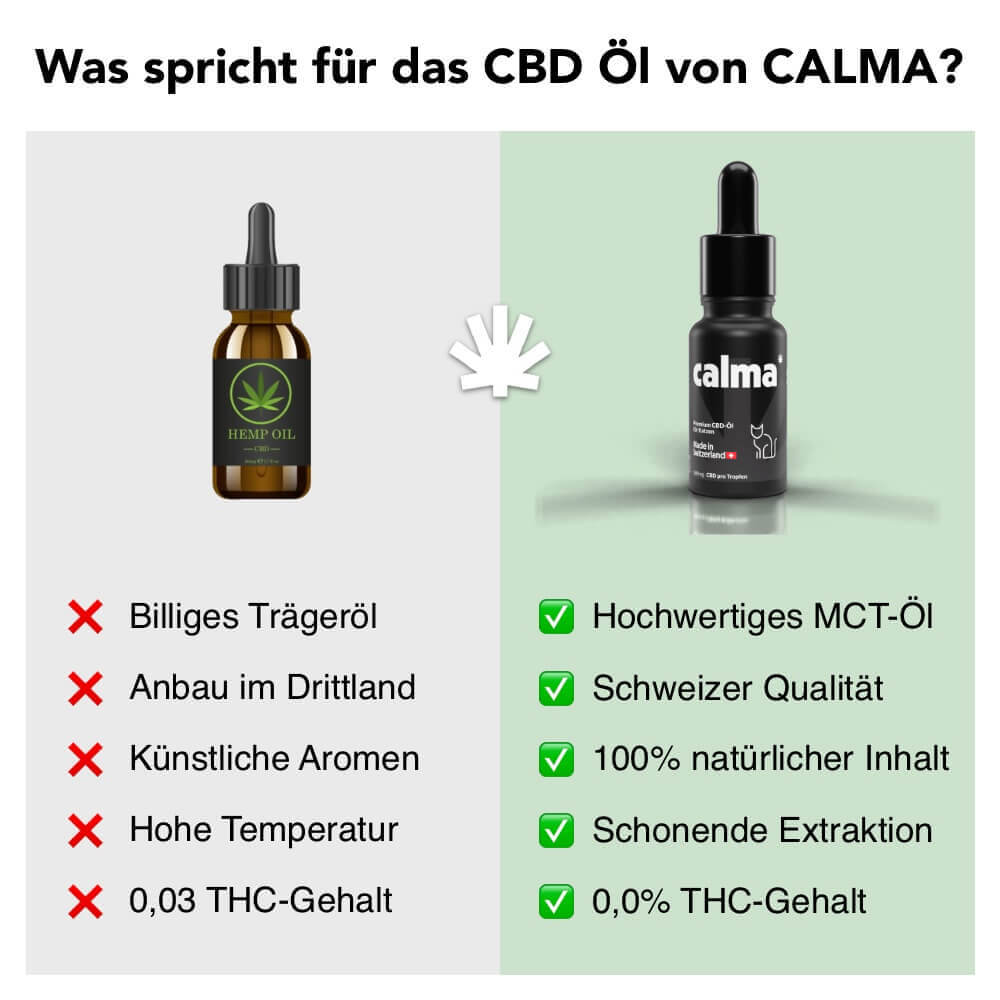
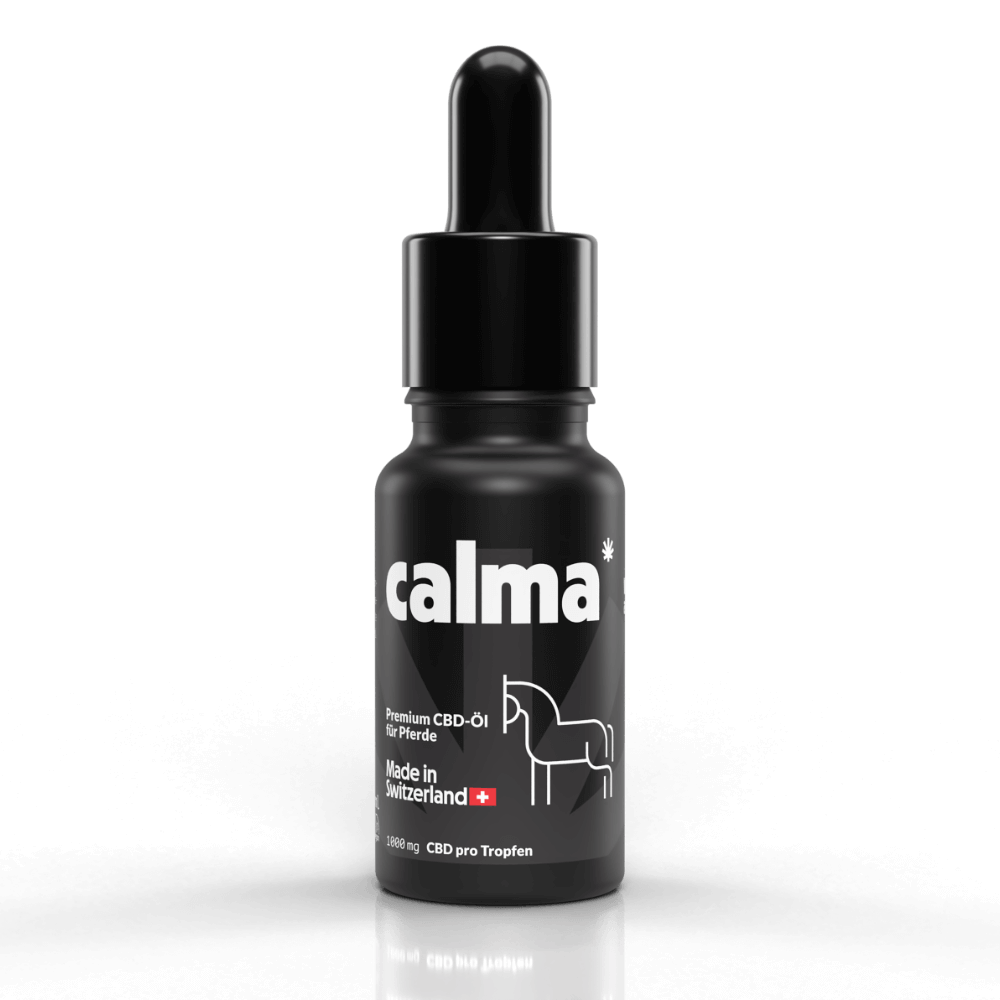
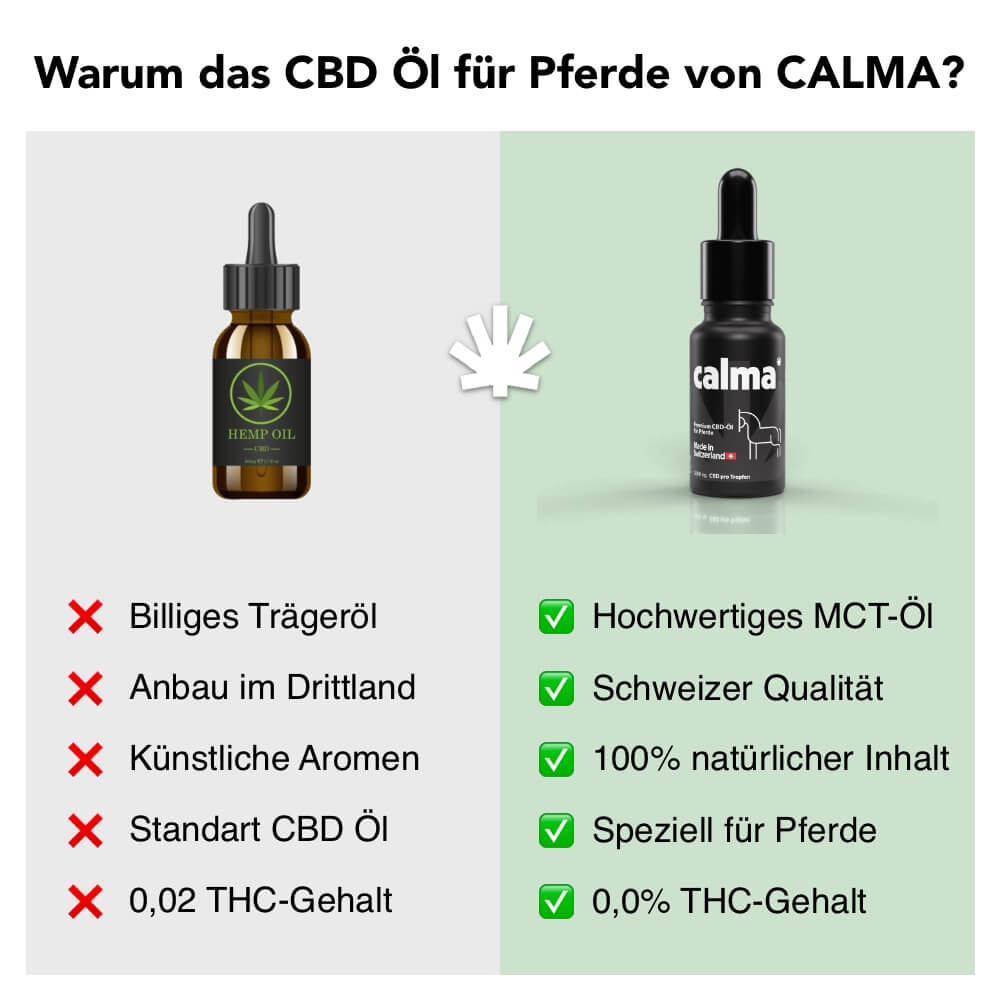
Leave a comment
All comments are moderated before being published.
This site is protected by hCaptcha and the hCaptcha Privacy Policy and Terms of Service apply.